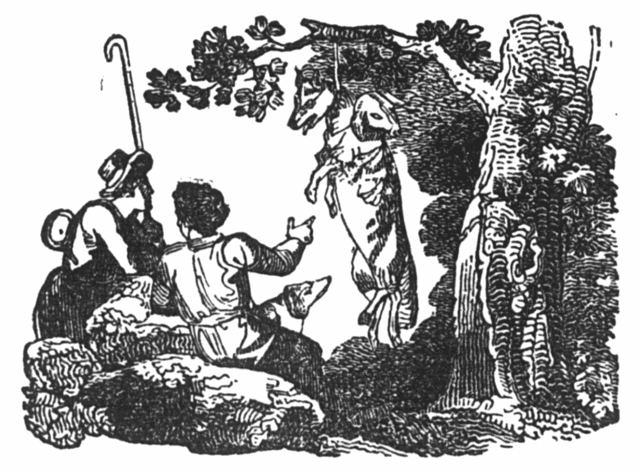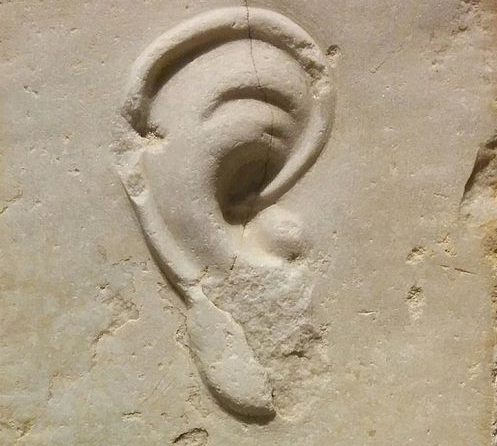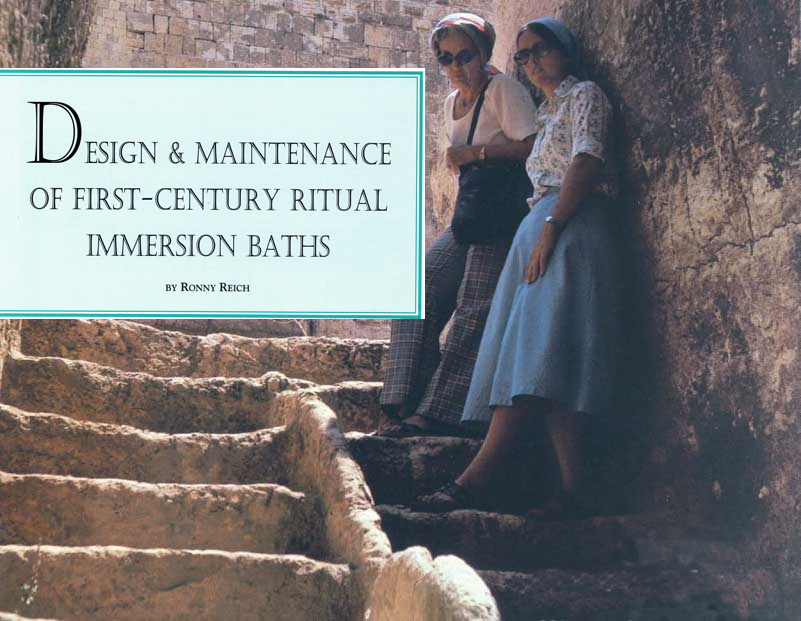Hearing something repeatedly can diminish its significance. I suspect that this is particularly true of Scripture. Overfamiliarity with a biblical passage can contribute to its misunderstanding. Sometimes it can reduce a profound saying to nothing more than a cliché.
Rabbinic Reflections on Living Sacrifices at Romans 12:1

Paul mentions the living sacrifices without explanation, as if the readers would be familiar with the concept. Similar early rabbinic vocabulary suggests that Paul is referring to sacrifices which were given to the Temple but which were inappropriate for offering, because they were female instead of male or for other technical reasons. They could not be un-offered so, although they were sacrifices, they were kept alive as temple property till they became blemished, and any profit from them was for the Lord.
The Statistics behind “The Tomb”

Rather than being treated as liabilities to a statistical study, conjectured details are turned into historical givens and are even factored in as positive data. Consequently, most of the connections made in the documentary fall under the heading of “special pleading.”
Christ’s Folded Napkin (John 20:7): Is it significant that the napkin that had been around Jesus’ head when he was buried was found in the empty tomb folded?

Does the folded “napkin” in Jesus’ tomb mean anything?
Jesus’ Reference to Folklore and Historical Events

An inherent consequence of our distance from the world of Jesus is that we primarily understand Jesus’ words as they apply within our twenty-first century eschatological and theological framework. However, Jesus’ teachings reflect his cultural background as a Jewish rabbi in first-century Galilee.
A Time To Fast?

Once, when Jesus and his disciples were enjoying themselves at a dinner party, a simple observation was made: “Your disciples don’t fast!” The observation was innocent and simple enough; it was not an accusation, but an honest exclamation of perplexity. Jesus’ response, however, was far from simple.
Hananiah Notos: The Never-ending Importance of the Dead Sea Scrolls
One of the recently published Dead Sea Scroll documents is known as the “Register of Rebukes.” Only parts of eleven lines of a column of this document have survived. However, even these few words and parts of words are enough to see that the document, or a portion of it, was a list of the sect’s members who were rebuked because they had violated community laws.
Call No Man “Father”

The word abba (אַבָּא), which literally means “the father” in Aramaic, but also can mean “our father” or “my father,” was brought into Hebrew and used in the endearing sense of “daddy.”
Another Look at the “Cleansing of the Temple” Story

Based on archaeological excavations near the southern wall of the temple, the research of Shmuel Safrai, and a nuance of the Hebrew verb that is one of the equivalents for Greek ekballein (drive out, banish; throw out; throw away, reject; cast out of a place, expel; remove, get rid of; put out), it may be necessary to reinterpret the gospel accounts of Jesus’ “cleansing” of the temple, even suggesting a different location for Jesus’ action.
Let the One Who Has Ears to Hear, “Hear!”

Gospel parables are probably the most widely identifiable teaching form of Jesus. However, readers seldom recognize Jesus’ sophisticated skill as a first-century Jewish parabolist. Indeed, many Christians are unaware that his use of story parables is one of the strongest links between Jesus and contemporary Jewish piety. His parables also demonstrate that Jesus taught in Hebrew.
The Teaching of Balaam

Revelation 2:12-16 is one of those occasions when it is necessary for the Christian reader to be familiar with first-century Jewish interpretation of an Old Testament account.
Joy Comes in the Morning
April here in Israel was a month of mixed emotions, a mixture of joy and sorrow. There were two major commemorations: Holocaust Remembrance Day (April 19) and Memorial Day (April 25); and two major joyous celebrations: Pesach, or Passover (April 8-14), and Independence Day (April 26).
Seder with Family
A visitor to Israel last night might have been puzzled by seeing the streets heavy with traffic, especially since it was already one o’clock in the morning. The reason was that last night was the first night of the annual week-long Passover festival celebrating the Jewish exodus from Egypt thousands of years ago, and people were returning home after taking part in a Passover Seder (the ceremonial meal on the first night of Passover).
Don’t Throw Away That Piece of Bread!

The importance of sharing one’s bread with the poor has remained in the Jewish consciousness until today.
With All Due Respect…

The relationship between a sage and his disciple may be characterized both as that of a father to his son, and of a master to his servant. In effect, a disciple indentured himself to his teacher. Traveling with and attending to him, a disciple remained with his teacher twenty-four hours a day, three hundred sixty-five days a year. The etiquette governing the teacher-disciple relationship is a fascinating subject. In this article, Shmuel Safrai explores one aspect of that relationship: To what extent could an advanced disciple differ from the opinions of his teacher?
Design and Maintenance of First-century Ritual Immersion Baths

Archeologists and other scholars have not written prolifically about ancient mikvaot (or ritual immersion baths). Nevertheless, ritual immersion in the first century A.D. constitutes an important element of the overall historical, social and religious background of the New Testament. Here, Ronny Reich explains in non-technical language the intricacies of the design and maintenance of ancient mikvaot.
The New International Jesus

Inaccuracy in translating either through ignorance or because of an obscure manuscript reading is to be expected, but to skew wittingly due to academic bias or religious tendentiousness smirches the reputation of a venerable profession.
The Synagogue the Centurion Built

Would a Roman officer have had the means to finance the construction of a synagogue in the lakeshore town of Capernaum?

